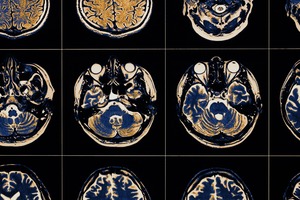
But does a traumatic brain injury qualify as a disability?
The answer depends on the severity of the injury and how it impacts your ability to live and work. Here’s what you need to know about TBI and what you can do if you’ve been injured.
Understanding Traumatic Brain Injury
A traumatic brain injury occurs when sudden trauma disrupts normal brain function. Falls, car accidents, sports injuries, and violent events often lead to TBI. While mild cases (often called concussions) typically result in temporary symptoms like headaches or dizziness, moderate to severe TBIs can cause lasting physical and mental impairments.
How TBI Affects Daily Life
The impact of a TBI varies from person to person. Some people may experience symptoms like memory loss, difficulty concentrating, mood swings, or impaired motor function. Others might face speech difficulties, vision problems, or even paralysis. For many, these symptoms interfere with their ability to perform everyday tasks, hold a job, or maintain relationships.
When TBI limits your ability to function, it often qualifies as a disability under the Americans with Disabilities Act (ADA). The ADA defines a disability as a physical or mental impairment that substantially limits one or more major life activities, including walking, speaking, working, or caring for oneself.
TBI and Disability Benefits
If you’re struggling with the long-term effects of a traumatic brain injury, you may qualify for disability benefits through programs like Social Security Disability Insurance (SSDI) or Supplemental Security Income (SSI). These programs aim to provide financial support for individuals who can no longer work due to a disabling condition.
To receive benefits, you must prove that your TBI prevents you from maintaining employment and significantly limits your daily life. Documentation from doctors, neurologists, and therapists plays a critical role in showing how your injury affects your ability to function.
Legal Support for TBI Victims
While TBI often qualifies as a disability, securing the necessary benefits or compensation isn’t always easy. Many insurance companies and disability programs deny claims due to insufficient evidence or unclear medical documentation. This makes it crucial to seek legal representation if you face challenges in receiving the compensation you deserve.
A knowledgeable personal injury attorney can help gather medical records, obtain expert testimony, and present a strong case to ensure you receive the benefits and support you need.
If you or a loved one suffers from a traumatic brain injury, don’t face the legal and financial battles alone. Contact Geller Injury Law Firm today for a free consultation. We’ll help you navigate your legal options, fight for your rights, and secure the compensation you need to manage your injury and rebuild your life.



